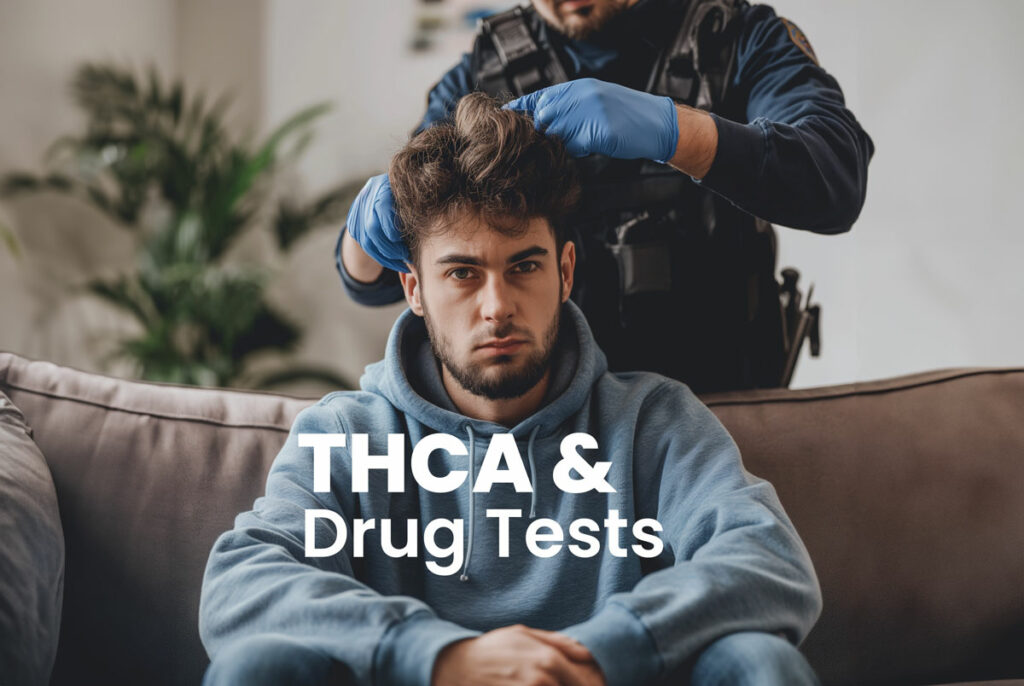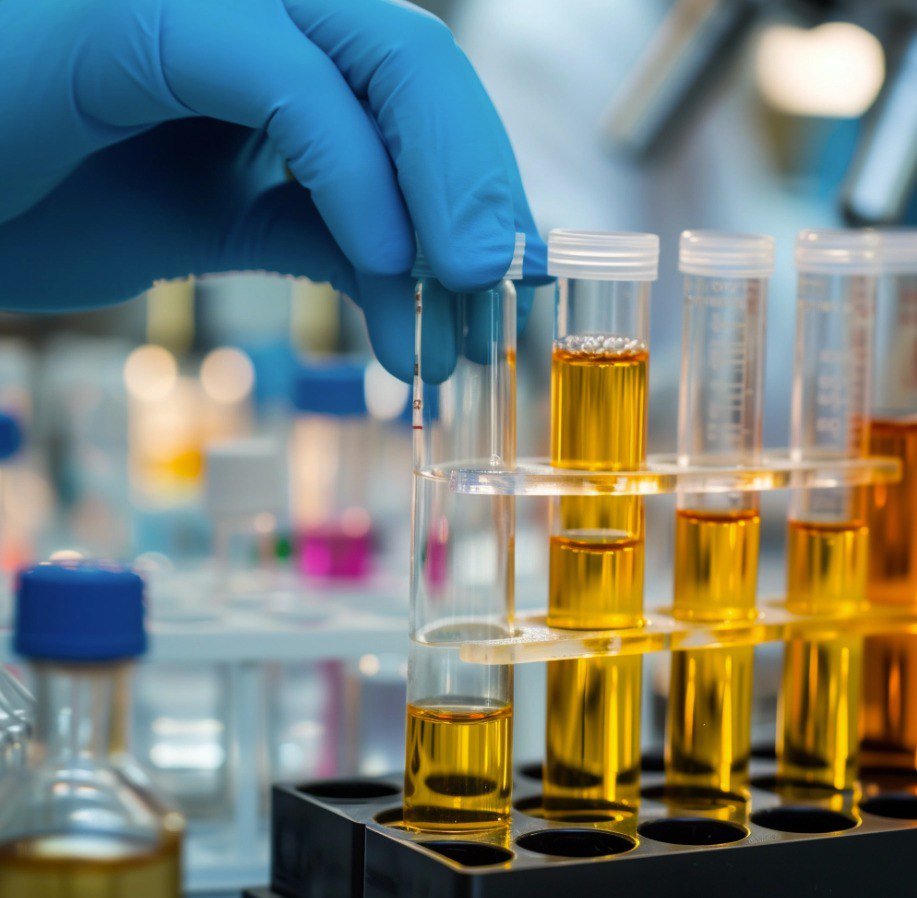Please confirm that you are 21 years of age or older
Please confirm that you are 21 years of age or older
By entering you accept our terms and conditions and our privacy policy.
So you’ve heard about this fancy new cannabis plant called THCA. Guests arrive popping up in all sorts of products now that hemp is legal. But as you know, your upcoming drug test at work could harsh your vibe if you consume the wrong stuff.
Let’s get the downlow on THC-A so you can make enlightened choices. We’ll explore how standard drug tests detect cannabinoids, and most importantly, whether THCA will make you fail or not. Buckle up buttercup, and get ready for some serious science mixed with cannabis wisdom!



Drug tests aim to uncover specific drugs or their metabolic leftovers using pee, blood, saliva or hair samples. They’re scoping for THC itself and its breakdown products rather than THCA specifically. Here’s the rundown of what they look for:
When you use the magical herb, your liver breaks down THC and THCA into metabolites before you excrete them in urine. THC-COOH is the main substance that drug tests search for because it lingers longer than other. Tests can detect it at tiny amounts as low as 15-20 ng/mL.
For occasional users, THC remains detectable in urine for up to 3-5 days. But for chronic all day smokers, urine tests can catch you for up to a month or longer after last puffing! THC also lingers in hair for up to 90 days. It disappears faster from blood tests and saliva tests though.
More high-tech tests can spot a bigger range of cannabinoids. And with THCA gaining street cred, some employers might soon start testing for it and its unique byproducts. But for now, it’s not a prime target like THC.

When it comes to THCA drug testing, it’s important to understand the different methodologies employed, including urine, blood, saliva, hair follicle, and emerging breath tests. Each has its own detection windows, limitations, and potential sensitivities to THCA itself.
Blood tests directly measure the presence of THC in the bloodstream. However, they are less common than urine tests due to their invasiveness. THC is only detectable in blood for up to a few hours after acute intoxication. But chronic use can extend detection to up to two weeks in some cases.
For occasional users, THC metabolites remain detectable in urine for 1-7 days after last use. Regular users can test positive for 30+ days.
Standard urine drug tests look for the metabolite THC-COOH, not THCA itself. Therefore, raw unheated THCA is unlikely to make you fail. However, if the compound gets activated through smoking/vaping, it can lead to positive test results beyond the 1-7 day detection window.
To pass an upcoming drug screening, avoid all forms of THC, for at least 7 days – or 30+ days if you are a regular user. Testing positive depends on individual factors. But abstaining for this time range is ideal to ensure metabolites drop below detectable levels.
Saliva or oral fluid testing is gaining popularity as a less invasive methodology. THC compounds remain in oral fluids like saliva for shorter periods than blood or urine, making it best suited to detect recent or immediate use. It’s optimal for roadside or workplace screening when impairment is suspected. The detection window is generally 1-3 days.
Hair follicle testing can detect the long-term presence of THC metabolites by analyzing a small hair sample, usually taken from the head. Detection windows reach back months and years since THC metabolites become trapped within growing hair strands over time.
An emerging new methodology is breath testing for THC compounds using devices similar to alcohol breathalyzers. THC presence can be detected almost immediately through tiny aerosol droplets in the breath during exhalation.
Some roadside breath testing devices are already being piloted in legal cannabis regions to assess driving impairment by measuring real-time THC levels that correlate with intoxication effects. These could become more widespread for workplace safety as well in the future.

Since routine drug tests don’t directly look for THCA itself, eating, drinking or taking pure, raw, unactivated THCA seems unlikely to make you fail a drug test. Raw cannabis THCA alone does not appear to trigger lead to a positive drug test pee test results.
The science is still evolving when it comes to THCA drug testing. While current testing methodologies don’t directly screen for THCA, its potential conversion to THC upon heating means it could still cause failed tests indirectly.
Until more research conclusively determines THCA’s impact on drug screening, it’s wise to abstain from any THCA products in the weeks leading up to a drug test. Play it safe if your job depends on it. While THCA shows therapeutic promise, it’s just not worth the risk until we know more about how it interacts with standard testing. Stay informed as the science continues unfolding.
Learn more about How long Delta 8 stays in your system >

Disclaimer: We work diligently to make sure all product information on our website is correct. The actual product packaging and materials may contain different information than what’s listed on our website. Please make sure to read labels, warnings, and directions on the packaging itself before using or consuming a product. If you have any questions about a product, please contact customer service. Content on this site is for reference purposes only and isn’t intended to replace advice from a physician, pharmacist, or other licensed health-care professional.
Inheal products are made with uniquely sourced, naturally occurring cannabinoids from hemp which is grown in the US.
Statements on this site related to inheal products have not been evaluated by the FDA. This website is not intended to diagnose, treat, cure or prevent any disease. Results from using these products may vary.
In December 2018, the 2018 Farm Bill became law by removing hemp from the federal list of controlled substances and classifying it as an agricultural commodity. All inheal products are meant for adults only.
California Prop 65 Warning
This product contains a chemical (delta-9 tetrahydrocannabinol) known to the state of California to cause birth defects or other reproductive harm. For more information, go to www.p65warnings.ca.gov